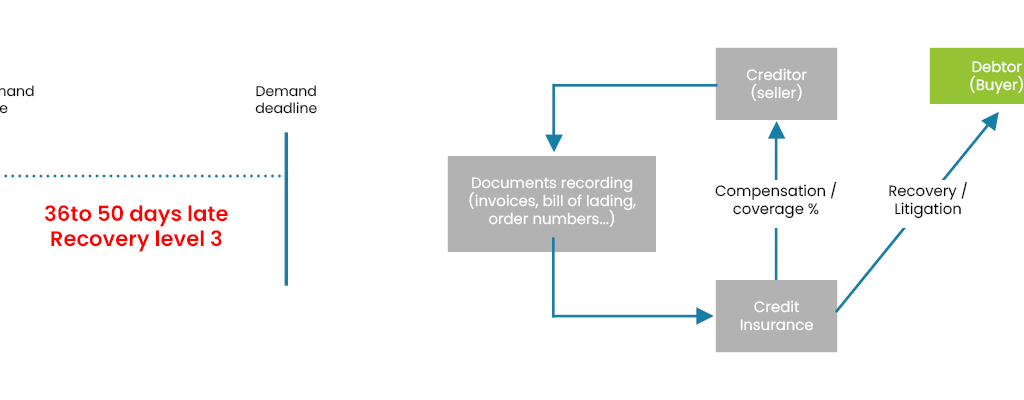What is Insurance Backed Letter of Credit (IBLOC)
Katherine Blake
12/6/20244 min read


What is an Insurance-Backed Letter of Credit (IBLOC)? Your Guide to Secure International Trade
Navigating global commerce presents numerous challenges. From legal differences to payment risks, businesses often feel overwhelmed. Using effective financial tools can ease these concerns. An Insurance-Backed Letter of Credit (IBLOC) is one such tool designed to provide extra security in international transactions.
The Challenges of International Trade
International trade involves various risks. These risks can arise from economic instability, political unrest, or even currency fluctuations. Keep in mind that trust is key in trade relationships. Without proper safeguards, a simple transaction can turn into a financial nightmare. This is where IBLOCs come into play.
Understanding the Role of Letters of Credit
Letters of credit are widely used in global transactions. They serve as a guarantee from a bank that a seller will receive payment as long as they fulfil certain conditions. Essentially, they help mitigate risks for both buyers and sellers. But while traditional letters of credit are useful, they may not always provide enough security.
Introducing IBLOCs: A Solution for Secure Transactions
An Insurance-Backed Letter of Credit (IBLOC) takes the security of a standard letter of credit a step further. By incorporating insurance into the mix, IBLOCs protect both parties in a transaction. They help ensure that funds are available even if one side fails to meet their obligations.
How Does an Insurance-Backed Letter of Credit Work?
The Role of Insurance in IBLOCs
Insurance serves as a safety net. In an IBLOC, if the buyer defaults on payment, the insurance provider steps in. This means the seller can still get paid without worrying about the buyer's financial situation. This added layer of protection makes IBLOCs attractive for businesses engaging in international trade.
Key Players in an IBLOC Transaction
Several parties are involved in an IBLOC transaction:
Buyer: The company purchasing goods or services.
Seller: The supplier providing the goods or services.
Bank: The financial institution issuing the letter of credit.
Insurance Provider: The company providing the insurance backing the letter of credit.
Step-by-Step Process of an IBLOC Transaction
Agreement: Buyer and seller agree on the terms of the sale.
Application: The buyer applies for an IBLOC through their bank.
Assessment: The bank evaluates the transaction and the buyer's creditworthiness.
Insurance Underwriting: The insurance provider reviews the transaction details and assesses risks.
Issuance: The bank issues the IBLOC, providing secure payment terms.
Fulfillment: The seller ships the goods, fulfilling the terms of the IBLOC.
Payment: Once the seller provides proof of shipment, the buyer's bank releases the payment.
Benefits of Using an IBLOC for International Trade
Reduced Risk for Exporters and Importers
IBLOCs significantly lower risks associated with international transactions. With insurance backing, sellers can confidently ship their products without fearing non-payment. Similarly, buyers are more likely to get quality goods, as sellers have the incentive to meet their obligations.
Enhanced Security and Trust
With the added security of insurance, both parties enjoy peace of mind. This trust fosters long-lasting relationships. Businesses can grow their networks with confidence, knowing their financial interests are protected.
Access to Financing Opportunities
Businesses using IBLOCs often find it easier to access financing. Banks see IBLOCs as lower-risk options, enabling smoother approvals for loans or credit lines. This added liquidity can be a game-changer in planning and scaling operations.
Comparing IBLOCs to Traditional Letters of Credit
Key Differences in Risk Mitigation
While both IBLOCs and traditional letters of credit provide assurance, IBLOCs offer enhanced security due to their insurance component. This means they better protect sellers from defaults.
Cost Considerations and Transaction Fees
IBLOCs may involve additional fees for the insurance backing. However, the overall cost can be justified by the reduced risk profile and the added benefits they provide.
Suitability for Different Transaction Types
IBLOCs are particularly beneficial for high-value or high-risk transactions. Businesses dealing with smaller purchases may find traditional letters of credit sufficient.
Choosing the Right IBLOC for Your Needs
Factors to Consider When Selecting an IBLOC
Transaction Size: Larger transactions often benefit more from IBLOCs.
Risk Tolerance: Businesses with lower risk tolerance should consider IBLOCs.
Industry Type: Some industries face higher risks, making IBLOCs a smart choice.
Finding Reliable Insurance Providers and Banks
Working with reputable banks and insurance companies is essential. Research potential partners and read reviews. Ensure they have experience with international trade to avoid pitfalls.
Negotiating Terms and Conditions
Do not hesitate to negotiate the terms of your IBLOC. Clear terms can prevent misunderstandings later on. Discuss payment timelines, fees, and specific obligations.
Case Studies: Real-World Applications of IBLOCs
Example 1: Automaker and Parts Supplier
An automaker in the U.S. supplies parts to a factory in Europe. Fearing non-payment due to currency fluctuation, the U.S. company opts for an IBLOC. They successfully ship the parts, secure in the knowledge that the insurance will protect them.
Example 2: Textile Manufacturer and Retailer
A textile manufacturer in India exports fabric to a retailer in Brazil. The Brazilian retailer insists on an IBLOC to mitigate risks. Both parties find the transaction easier and more secure, leading to future collaborations.
Example 3: Agricultural Exporter and Distributor
An agricultural exporter based in Australia partners with a distributor in Asia. To secure the deal, they opt for an IBLOC. The exporter delivers the goods confidently, knowing the IBLOC protects against payment issues.
Conclusion: Securing Your International Trade with IBLOCs
Key Takeaways and Best Practices
IBLOCs provide a robust solution for mitigating risks in international trade. They enhance security, reduce risk, and foster trust between parties.
Actionable Steps for Implementing IBLOCs
Evaluate your business needs and transaction sizes.
Partner with reliable banks and insurance providers.
Negotiate favourable terms tailored to your operations.
Future Trends in IBLOC Usage
As global trade continues to expand, IBLOCs are likely to grow in popularity. More businesses will recognize their value in securing transactions. Staying informed about market trends can set your business apart.
Shambrook Wilson LLP © 2025. All rights reserved.
Office
4 Woodlands Close, Oswestry,
Shropshire, England, SY11 2TX
info@shambrooklegal.com
Media Inquiry
newsblog@shambrooklegal.com
Legal Issues
legal@shambrooklegal.com
